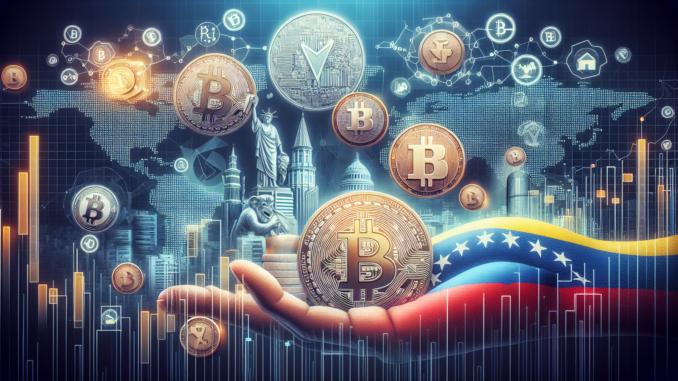
Venezuela is known for its economic challenges, particularly hyperinflation and political instability. Amid this uncertainty, the government has turned to cryptocurrencies as a possible solution to tackle the economic turbulence and stabilize the national economy.
The Role of Cryptocurrencies in Venezuela
In recent years, cryptocurrencies have played a notable role in Venezuela to circumvent economic difficulties caused by hyperinflation and political instability. President Nicolás Maduro has promoted the recognition and use of cryptocurrencies like Bitcoin and Ether within the country. Cryptocurrencies are increasingly being used as an alternative to the unstable bolivar national currency and serve as a protection mechanism against the rampant inflation that has drastically reduced the purchasing power of the population.
Cryptocurrencies as a Tool Against Hyperinflation
One of the key developments in Venezuela in the context of cryptocurrencies is the establishment of the state cryptocurrency Petro, which is supposed to be backed by the country’s rich oil reserves. Although the introduction of the Petro is controversial on the international stage, the Venezuelan government emphasizes that this cryptocurrency is intended to help alleviate the country’s economic problems and circumvent international sanctions. However, experts regard the lack of transparency and international discontent as potential hurdles for the success of the state cryptocurrency.
Adoption by the Population
The citizens of Venezuela frequently turn to cryptocurrencies to stay afloat and gain access to international markets. Bitcoin and other digital currencies enable Venezuelans to send money transfers abroad and purchase goods and services. Peer-to-peer trading platforms, such as LocalBitcoins, have gained popularity in the country as they allow the exchange of Bitcoins for Bolívares or US dollars, thus providing a certain degree of financial stability and independence.
Opportunities and Challenges of Cryptocurrency Integration
The increased use of cryptocurrencies in Venezuela offers opportunities but also poses challenges. On the one hand, the widespread acceptance of digital currencies could lead the country into new economic spheres by enabling the creation of a profitable and transparent crypto framework. On the other hand, these efforts face significant hurdles, such as the need for a solid regulatory framework and international acceptance. Cryptocurrencies also do not offer a cure-all for the structural problems of the Venezuelan economy, such as corruption and mismanagement, and cannot fully tackle the economic challenges without corresponding reforms.
A Step Towards Economic Stability?
As cryptocurrencies play an increasingly important role in the Venezuelan financial system, the question remains whether they can be a lasting solution to the country’s economic growth and stability. While digital currencies offer short-term solutions for inflation protection and economic independence, comprehensive economic and political reforms are needed in the long-term to achieve genuine stabilization and recovery. The international community is closely watching how the economic situation in Venezuela evolves and whether cryptocurrencies can truly transform the country’s financial landscape.
Venezuela’s efforts to place cryptocurrencies at the heart of its economic strategy are undeniably bold and innovative, yet they represent an unprecedented path that must be critically and strategically thought out. The future will show whether these digital assets can support Venezuela on its path to economic stability and independence.
Leave a Reply